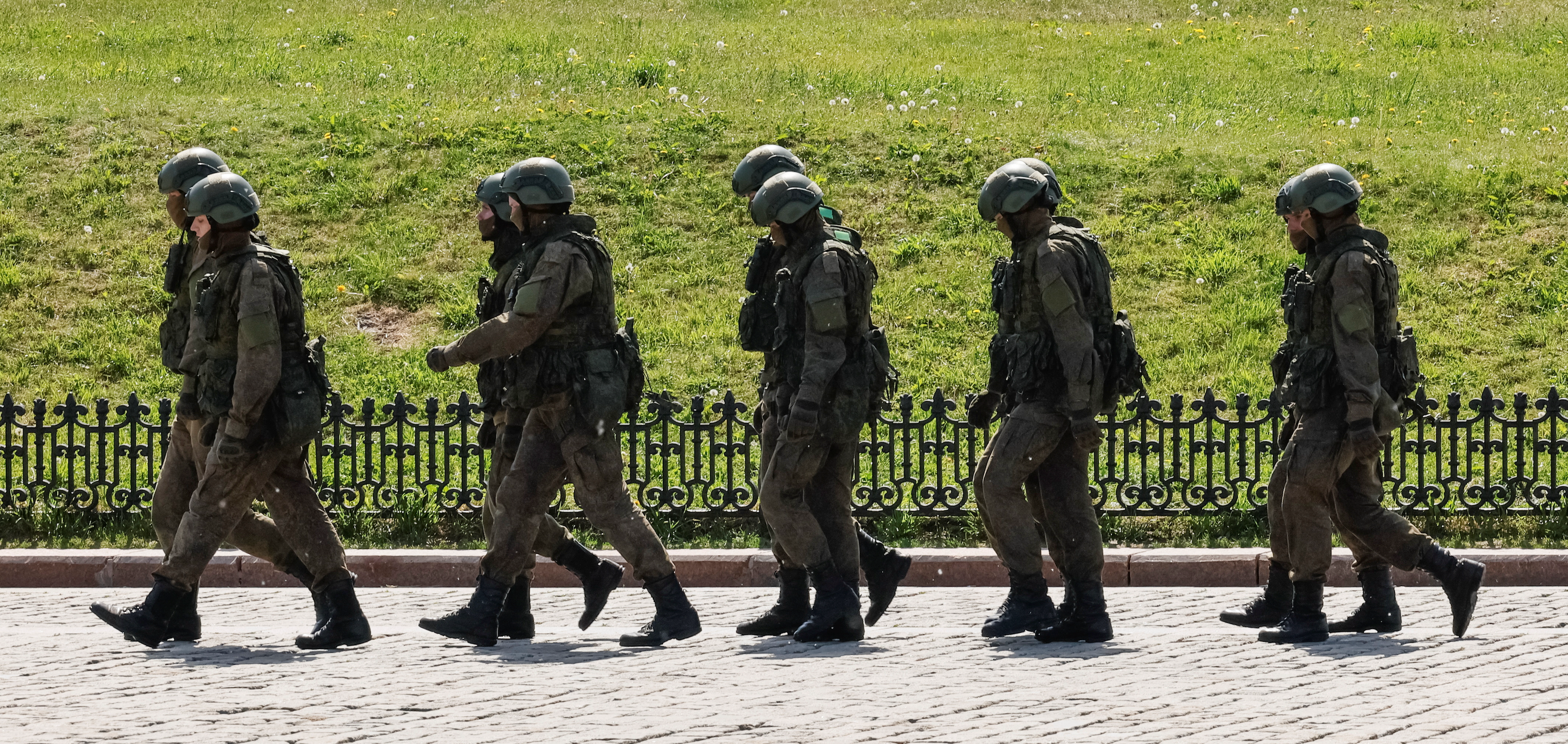
Russian lawmakers seek punishment for troops using smartphones in Ukraine war
PHOTO CAPTION: Russian army servicemen walk at an exhibition displaying armoured vehicles and equipment captured by the Russian army from Ukrainian forces in the course of Russia-Ukraine conflict, at Victory Park open-air museum on Poklonnaya Gora in Moscow, Russia May 31, 2024. REUTERS/Shamil Zhumatov
MOSCOW (Reuters) - Russia's lower house of parliament, the Duma, has proposed disciplinary detention for up to 10 days for troops using devices with camera and geolocation functions in combat zones such as Ukraine, Russia's TASS state news agency reported.
Mobile phones have been used by both sides to identify targets in the Ukraine war, both by tracking signal locations and by accessing the photographs or messages posted by the devices, according to Russian and Western officials.
According to a draft law supported by the State Duma Defence Committee, the use of electronic devices meant for "household purposes" and which allow for filming, audio recording and transmission of geodata while in the combat zone in Ukraine, will be classified as gross disciplinary offence, TASS reported.
The bill would allow commanders of military units to decide on the imposition of disciplinary arrest for a period of up to 10 days for one gross disciplinary offence, TASS reported.
A 2024 report by the Enea cybersecurity software firm has found that mobile phones could be easily tracked on the battlefield in numerous ways by the opposing sides in the Russia-Ukraine conflict.
A Ukrainian missile strike in 2023 killed nearly 100 soldiers in the Russian-controlled Donetsk region of Ukraine housed in a vocational school after unauthorised use of mobile phones by the troops allowed Kyiv forces to locate them.
TASS reported that the Duma draft law also seeks disciplinary arrest for up to 10 days for troops who violate the existing ban on public distribution of information that could identify Russian military personnel or their location.
(Writing by Lidia Kelly in Melbourne; editing by Guy Faulconbridge)









